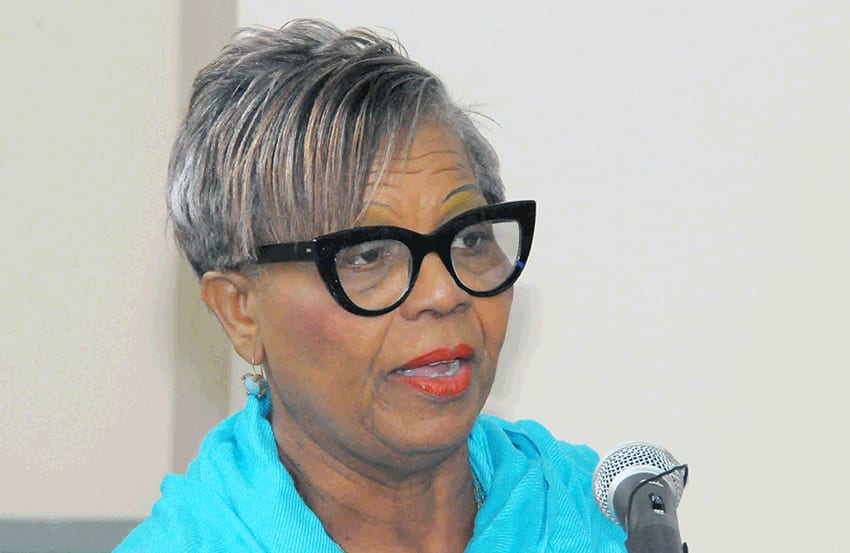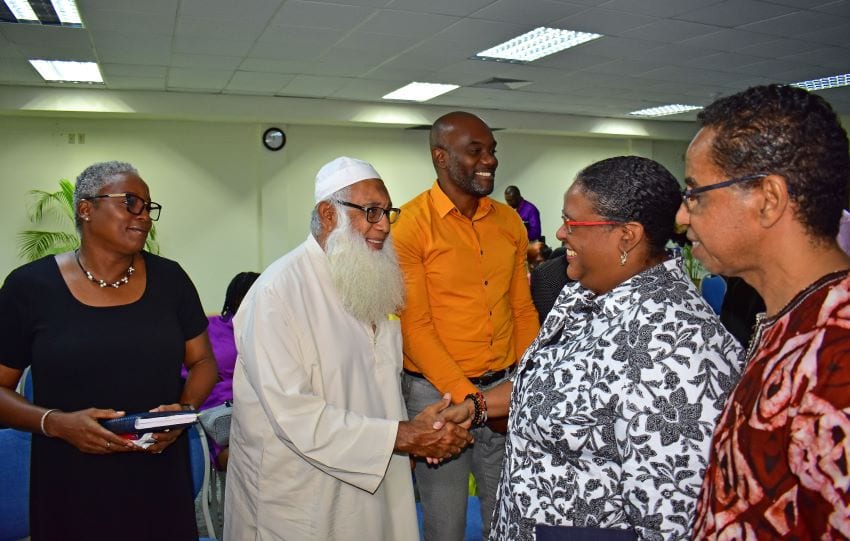
Minister of People Empowerment and Elder Affairs, Cynthia Forde, has given the assurance that with the launch of People’s Assemblies, citizens’ voices will be more powerful than ever before.
Ms. Forde made the assertion today at the media launch of the Thorne Commission on Local Governance, at the Lloyd Erskine Sandiford Centre, Two Mile Hill, St. Michael.
The launch of the commission signals the first step towards informing the process of establishing People’s Assemblies.
She said that with governments being asked to accomplish more with fewer resources, a powerful voice for local democracy was needed now more than ever.
“As citizens and consumers have become more demanding and less willing to accept the socio-economic climate of our country, the Government of Barbados must act now. We simply cannot ignore them.
“The reality is that local government is a vital aspect of our democracy. It is rooted in local communities, in touch with people, and has the potential to be a better system for meeting the needs of our people than national government. Simply put, it is a transformation of government that puts power and independence back into our local communities. It is not a question of big or small government, but a different type of government that connects with communities. We must be determined to blow away the dust and cobwebs of outdated practices and strengthen local leadership, build stability and be accountable to our citizens,” she stated.
Ms. Forde said the proposal to create the assemblies was premised on the view that the reason for the collective difficulties being experienced by Barbadians was a weak and deficient institutional structure that did not facilitate people’s intervention in national and local governance affairs.

She added that in order to avoid the pitfalls of the past, and to respond to previous challenges, it was important to have continuous dialogue with communities.
Chairman of the Thorne Commission, Ralph Thorne, said he and his members had already developed a basic structure of local governance.
“From today, we turn to the public, whose ideas will complete this architecture that will transform governance and local government in this country. Hopefully, the public will do this at their will, with our guidance and in the interest of the people of Barbados,” he stated.
He stressed that the commission’s work would not be completed unless it invited very active participation from all. In addition, he noted that the commission was an instrument that would guide the process and accommodate the change that the people of this country deserved.
Stating that the commission had already worked long and promised to toil even longer, he continued: “Thereafter, we will return to Minister Forde, confident that you can go to the Parliament of this country and to legislate the fundamental changes to governance.”
David Comissiong, is the Deputy Chairman of the commission, while the other members are: Richard Carter, Krystle Howell, Jennifer Walker, Adrian Donovan, Sherwood McCaskie, Cheryl Hunte, Peter Skeete, Barney Gibbs and Mohamed Ali Nana.
